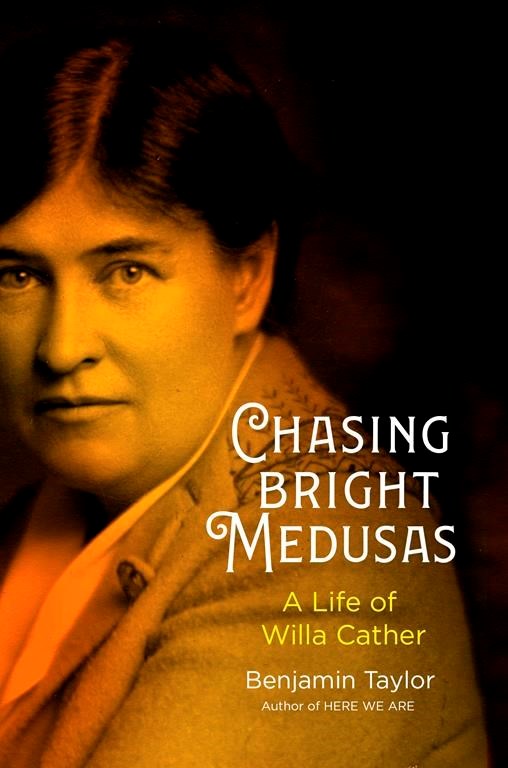Benjamin Taylor has a thing for This year, the 150th anniversary of her birth, he has written a passionate love letter to her in the form of a brief but illuminating biography. “Chasing Bright Medusas” clocks in at just over 150 pages but it offers a fine introduction to one of the leading novelists of the American frontier.
Taylor, a prize-winning author who also penned short books about Philip Roth and Marcel Proust, argues that Cather’s move at age 9 from Virginia’s Shenandoah Valley to Red Cloud, Nebraska, where for the first time she encountered Jews, Norwegians, Mexicans and immigrants of all kinds, was a foundational event that “made her a cosmopolitan while she was still a provincial.”
He also demonstrates how, as she matured as a writer, she differed sharply from her younger contemporaries in the literary world, including Hemingway, Faulkner, Fitzgerald and Dos Passos, in her “unironic” idealism about America’s possibility.
His other major themes include her complicated relationship to both gender and religion. About the former, he agrees with other critics who have simply taken her strong preference for women as a given. But he adds another layer of complexity by asserting that she preferred “to talk about love at its most exalted, above the reach of mere carnality… sexual nature is what she intends to rise above.”
As for religion, he explains how it was closely bound up with her profound reverence for nature, especially the “harsh beauty of the Southwest,” which “seemed to her the landscape of an inner life.” It was also part and parcel of her desire for literary immortality. “There is no God but one God and Art is his revealer,” Cather wrote to a friend when she was still in her early 20s. “That’s my creed and I’ll follow it to the end.”
Portraying her as a relatively late bloomer — she had a lengthy stint in journalism before she began writing fiction — Taylor repeatedly marvels at both her physical courage and stamina and her iron discipline as a writer. He cites with admiration what she once wrote to a friend: “If only I could nail up the front door and live in a mess, I could simply become a fountain pen and have done with it — a conduit for ink to run through.”
By marshaling judicious quotes from her letters as well as her short stories and novels, including such classics as “My Antonia” and “Death Comes for the Archbishop,” Taylor makes a case for Cather’s enduring place in the American literary canon.
___
AP book reviews:
Ann Levin, The Associated Press



